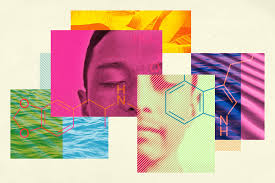Podcast: Play in new window | Download (Duration: 58:22 — 133.6MB)
Subscribe: Apple Podcasts | Spotify | Amazon Music
When we think of ADHD, we often imagine a restless & fidgety child who loses focus rather than the grown up parent or partner these kids eventually become. It is a legit neurological condition – yet adults with ADHD or ADD often believe that they are forgetful, lazy, selfish & disorganized. Unfortunately sometimes so do their partners. This episode will help you appreciate your unique gifts, or value your distractible partner.
“ADHD doesn’t create new problems, it just exacerbates the universal ones.”
Co-host Ann Kelley speaks with Ari Tuckman, psychologist, certified sex therapist who specializing in ADHD within relationships, and he sheds light on how ADHD can impact our relationships, from conflict to sex, and outlines ways to improve both.
In relationships, couples often fall into imbalance, over-functioning and under-functioning. You recognize it – the one who manages order and responsibilities (aka “control freak”) and the other looking for spontaneity and fun (aka “irresponsible one”).
Who is Ari Tuckman?
Ari Tuckman, PsyD, CST is a psychologist and certified sex therapist in private practice specializing in diagnosing and treating children, teens, and adults with ADHD, as well as couples and sex therapy. He has appeared on CNN, National Public Radio, and XM Radio and been quoted in The New York Times, USA Today, The Washington Post, The Boston Globe, USnews.com, The Daily Mail (UK), and many other media outlets.
See his full bio below.
Understanding Adult ADHD – today’s episode
Ari advocates for ADHD awareness so adults and therapists can actively recognize it in others because it does not just affect children.
These children grow up and continue to have ADHD make up about 4% of the general population, that is 1 in 25.
Effects of non-diagnosed ADHD can be painful and complex: common effects include anxiety, depression, bipolar, marital discord, and substance abuse issues.
If you don’t look for symptoms of ADHD, you may not find it, and that is painful and problematic for everyone involved.
What can we see in our office, partners, and ourselves to know if we have ADHD?
Not everyone with attentional issues has the classic symptoms of being hyperactive. It shows up in adults as inattentive symptoms like time management, disorganization, forgetfulness, procrastination, and misplacing things. That is why in adults what you actually see in Attention Deficit Disorder (ADD).
When someone in your immediate family has it, there’s a 25% chance that you might have it too.
People who have distractibility will see the symptoms show up in many stages of their life – childhood, college, as a young adult. The symptoms can show up in their job, or at home.
Untreated or unrecognized attention issues affects school performance, career attainment, lifelong learnings, car accidents, relationship satisfaction – it’s always there and impacts your life interactions.
When it goes undiagnosed it can drastically influence your self-esteem – but when diagnosed you can have a better understanding of your behavior.
Medication can work very well, risk/side effects are very low, not addictive if used appropriately, and can reduce substance abuse problems when addressed first.
Why give a stimulate to someone that would seemingly be “hyperactive?”
The medications act as “brake fluid” so those affected are able to “hit the brakes” more easily before acting.
When adults take ADHD medication, it gives them the ability to limit or be aware of thoughts that deter them from the task at hand. Without the medication, the thought of the task at hand can develop into many thoughts leading to being distracted, possibly forgetting, and then punishing themselves for forgetting. Ultimately, this leads to negative thoughts, anxiety, or those close to them believing the task is being neglected.
The person with more focus can become bothered by this repeated behavior and the partner with ADHD will either become down and depressed and/or angry and reactive when they feel targeted by the non-ADHD partner. Generally, both will happen. One can become angry and reactive when receiving negative feedback and down and depressed when feeling they can’t do anything right.
People with ADHD are capable of being very focused during specific moments, like when receiving negative feedback, but then they are held to that standard at all times.
Spouses begin to become angry because they witness the ADHD person focus on some things and not on others. They can get triggered and feel neglected.
A neurological syndrome
It doesn’t create new problems, it just exacerbates the universal ones. The common solution to the problem between a partner with ADHD and the non-ADHD person: the person undiagnosed just needs to step up! This is not sustainable or realistic, it's like asking a depressed person to cheer up!
The less obvious solution: The non-ADHD partner also needs to learn to step back, accept uncertainty, learn to manage their own anxiety, and choose their battles. Both partners can negotiate and express expectations but have understanding and compassion.
Ann and Ari provide examples of issues that can arise between a couple of a non-ADHD and a person with ADHD and how they can work as a team to resolve it.
Ari speaks about his book, ADHD After Dark and about the relationship between ADHD and sexual relationships based on his survey of over 4,000 individuals and 72 questions.
_____
RESOURCES:
Additional resources for this episode:
- Ari Tuckman's Website http://adultadhdbook.com/
- Ari Tuckman's Website https://tuckmanpsych.com/
- Ari Tuckman's Book: More Attention, Less Deficit: Success Strategies for Adults with ADHD
- Ari Tuckman's Book: ADHD After Dark: Better Sex Life, Better Relationship
- CHADD.org – leading nonprofit organization serving people affected by ADHD.
- These and other resources have been collected for you on our Resources page!
___
Ari Tuckman’s Bio:
Ari Tuckman, PsyD, CST is a psychologist, Certified Sex Therapist, and ADHD expert in private practice in West Chester, PA. His fourth book (ADHD After Dark: Better Sex Life, Better Relationship) helps couples improve their sexual and relationship satisfaction. He has done more than 400 presentations and interviews across America and in nine countries. You can find information about his books, upcoming presentations, and recordings of past presentations at adultADHDbook.com._
Our course on Attachment and Neuroscience – It's Not Me It's My Amygdala, is now available to everyone! Four (!) hours of curated content on modern attachment and healing. It is designed for anyone wanting to deepen security in themselves or those close to you (CE's available for clinicians). You've been interested enough to listen and dig into the shownotes, so you are are people and we are yours. Get 10% of the course with code: OURCLAN. 🙂
CLICK HERE TO CHECK OUT THE COURSE
______
Want to join our community?
We are on Patreon!
You can become a Neuronerd supporter and help the show continue to grow! Join our exclusive community of Therapist Uncensored Neuronerds for as little as $5 a month (or become a Co-executive Producer for $25/month)!
Increase your access, join a kick-ass like-minded community, get discounts on our courses and get exclusive content. Help us create a ripple of security by supporting us in freely sharing the science of relationships around the globe!













